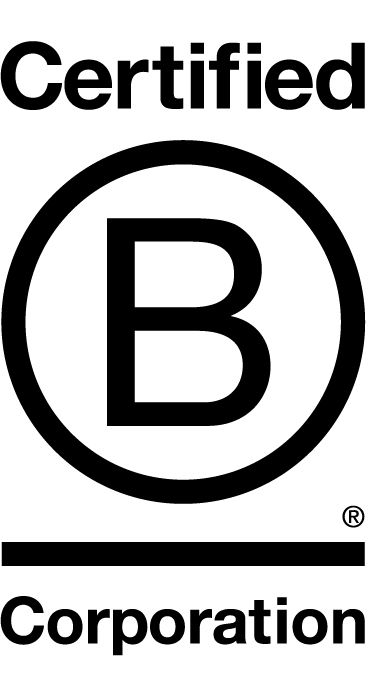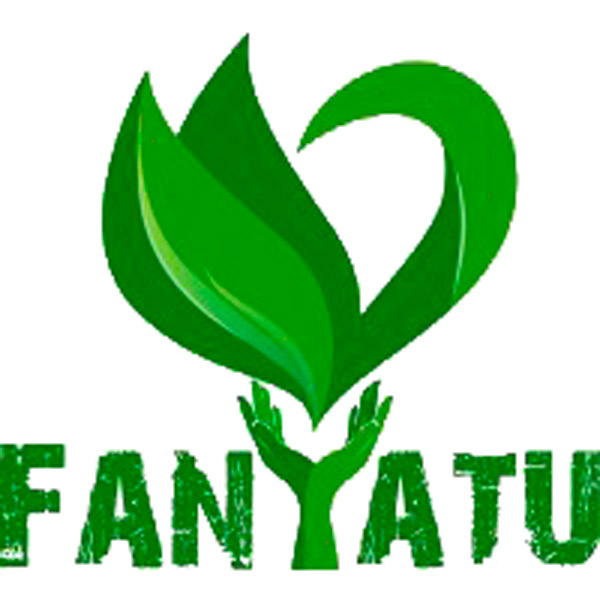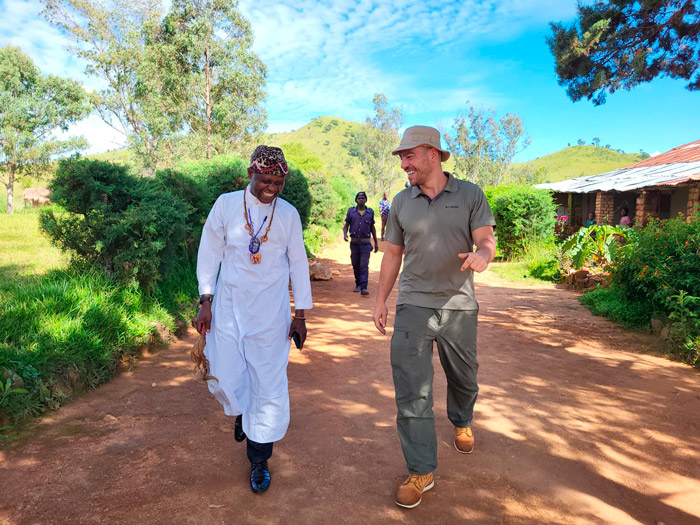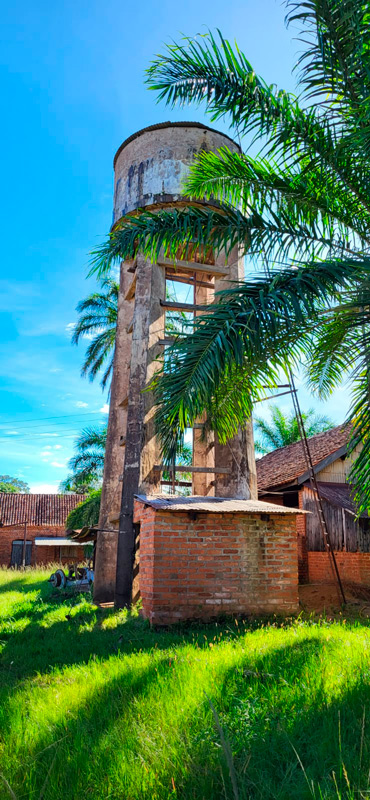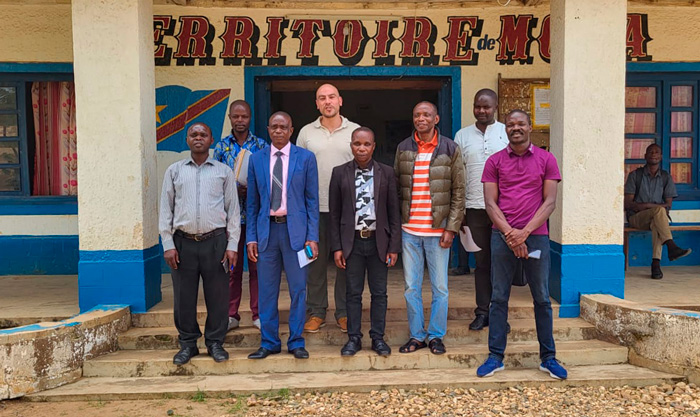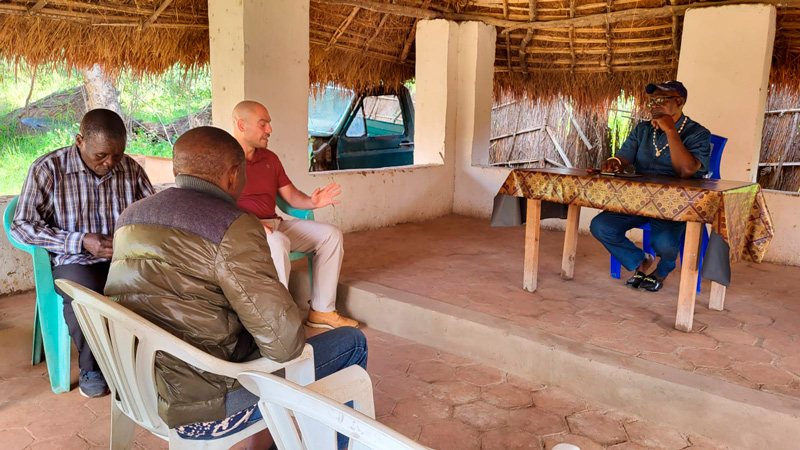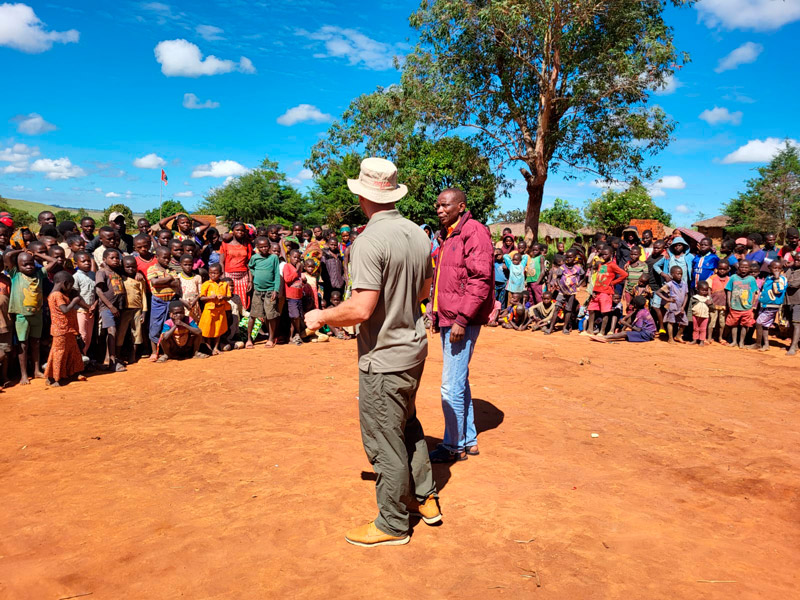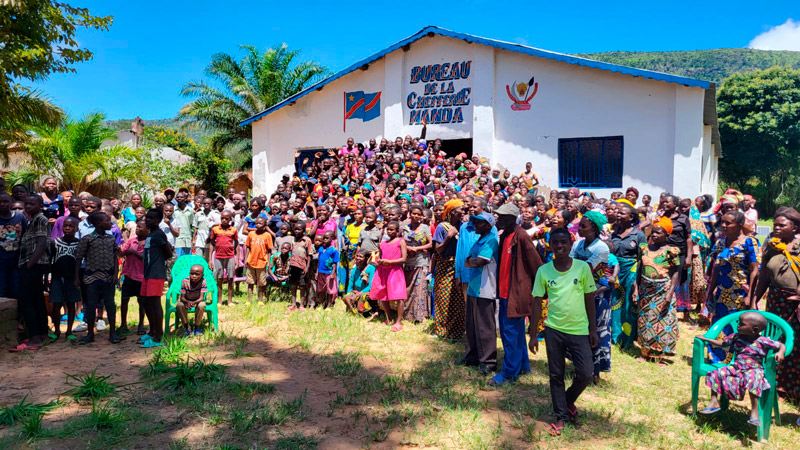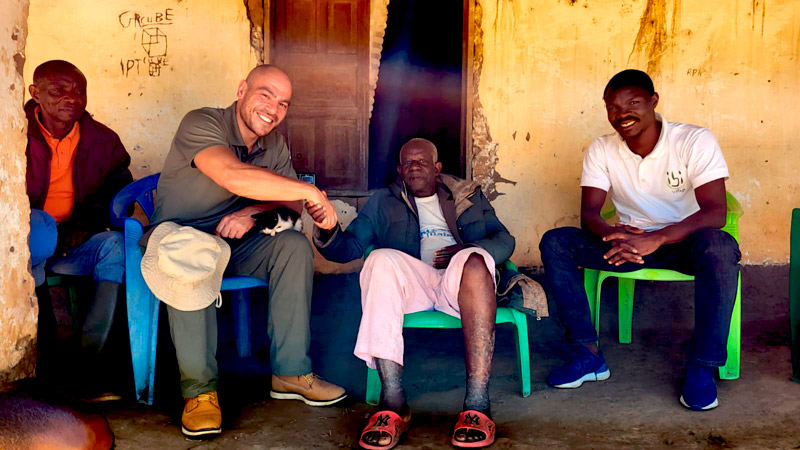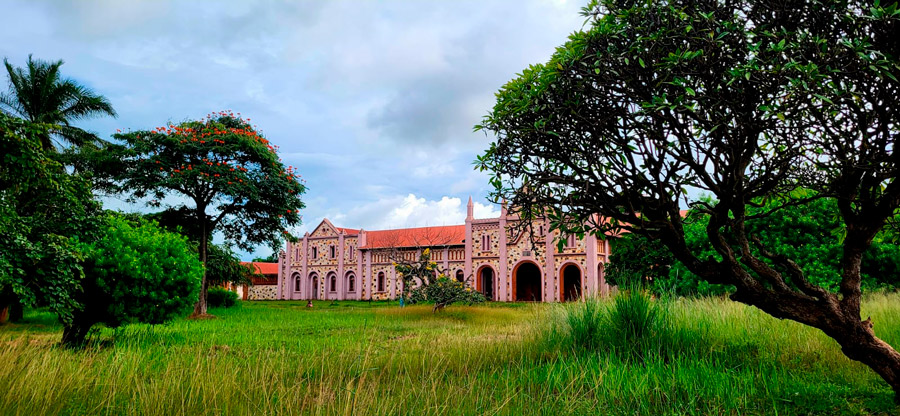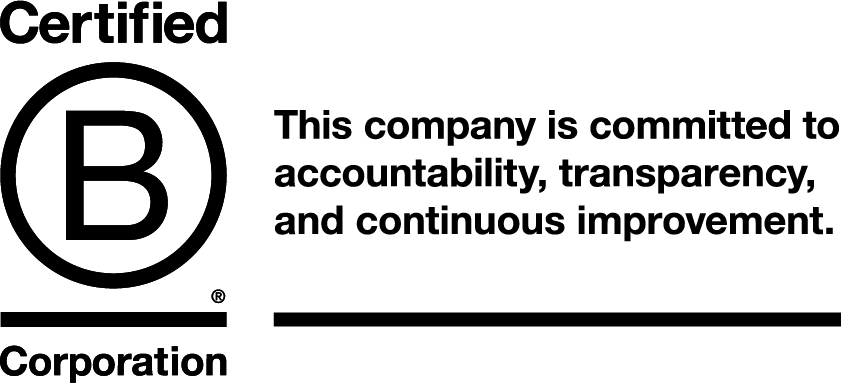
THE UNIQUENESS OF THE REGION
The forests of the Congo Basin are the first (and last) lungs of the planet. They absorb more carbon than any other forests in the world. They are also an essential reservoir of biodiversity.
In the Congo basin alone, half a million hectares of forests are lost each year, and 65% of land is affected by degradation. This results in increased water and food scarcity, poverty, and the loss of biodiversity.
THE REGION AND THE COMMUNITIES
The project covers 10.000 hectares in Balanga Village, in three of Moba’s five chiefdoms: Kansabala, Manda, Kayabala.
In central Africa, most people eat once a day. In DRC, 90% of the people are still farmers, depending on the rainy season to grow their food. Fertility is obtained by burning down the forests. Besides being an ecological disaster, the slash and burn system doesn’t allow them to really profit from their work, as they must work too much to get only poor results.
Also, makala (wood coal) is the only energetic sources available in this region.
The project seeks to fight deforestation in the Congo Basin by setting up a system that conserves the forest that still exists, regenerates what has disappeared, and increases the standard of living of the population through a transfer of skills.
The project tackles the causes of deforestation in the DRC (slash and burn agriculture and makala (coal) by teaching permaculture to the communities, a new methodology that allows the population to increase their standard of living while regenerating the environment.
POSITIVE OUTCOMES
Project activities and goals
ABOUT PERMACULTURE
Permaculture allows communities to create permanent productive ecosystems by planting trees, sedentarizing agriculture, decreasing their workload, increasing yield, preserving the forests, and creating new ones.
Community Empowerment through permaculture
COMMUNITY NURSERIES
At the end of their training, students can directly access the trees they need to create their own self-fertile system via the community nurseries that we set up in the villages.
All the nurseries produce forest and fertilizer trees (fruit trees, trees producing essential oils, fast-growing trees for construction needs, ornamental trees, anti-erosion trees, caterpillar trees, medicinal trees, etc.), that is to say, trees useful to increase the economic or food resources of the community that chooses by themselves the species they wish to plant.
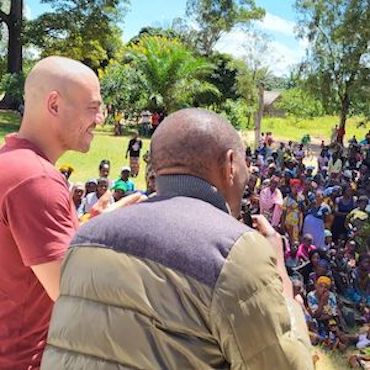
REFORESTATION
The project seeks to integrate reforestation into local life, by setting up large-scale reforestation projects that consist of completely reforesting plots of several thousand hectares based on the direct seeding technique developed by Graine de Vie.
This technique of selecting, treating, and planting seeds directly in the soil at the beginning of the rainy season allows us to reforest large areas quickly and cheaply in collaboration with the communities that are hired to carry out these activities.
The project will plant 10 000 000 trees using the GRAINE DE VIE direct seeding methodology.
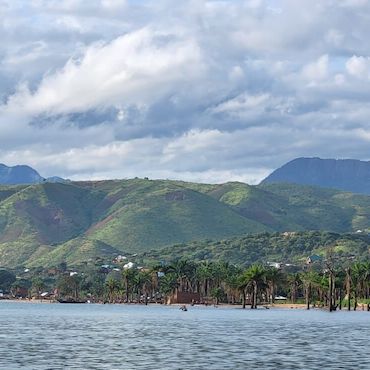
CARBON CREDITS TO FINANCE PROJECT SUSTAINABILITY
The massive reforestation allows the project to access the voluntary carbon market and thus produce capital that communities choose to invest in the regenerative solutions presented in the school and thus transform their village into an autonomous ecological village.
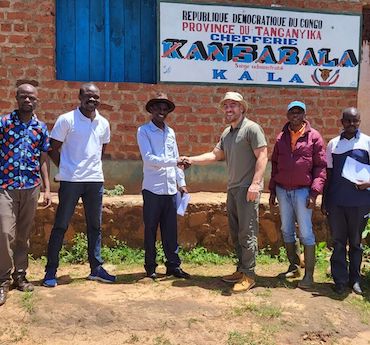
PROJECT PARTNERS
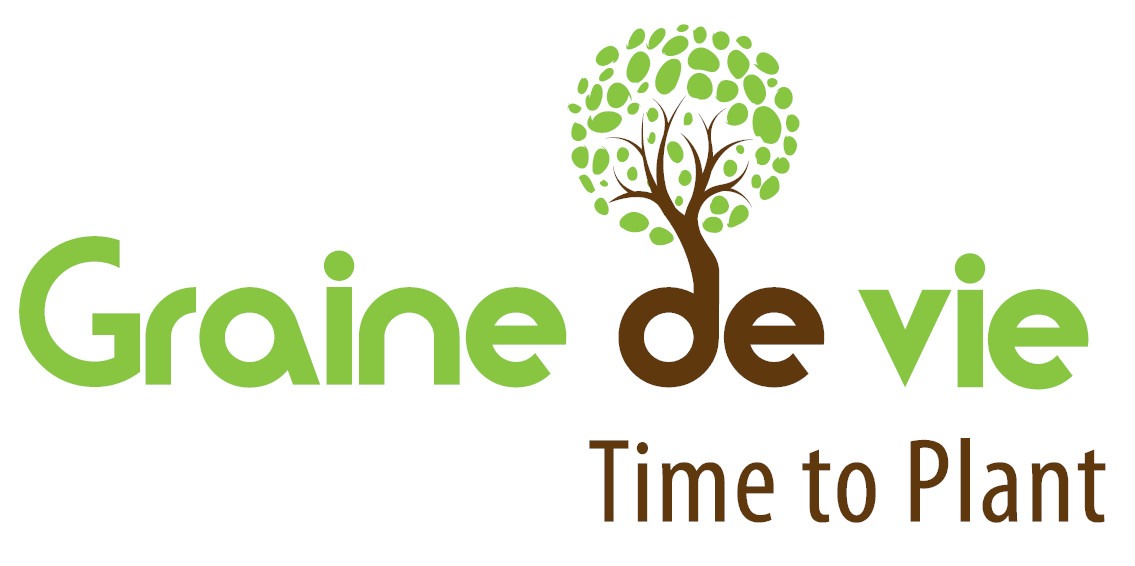
ALLCOT HAS RECEIVED THE LETTER OF NO OBJECTION
Issued by the Ministry of Environment of the Republic of Congo for our project. This approval, granted by the Designated National Authority, confirms that there are no objections to the development and financing of the project, ensuring its viability according to established environmental requirements.

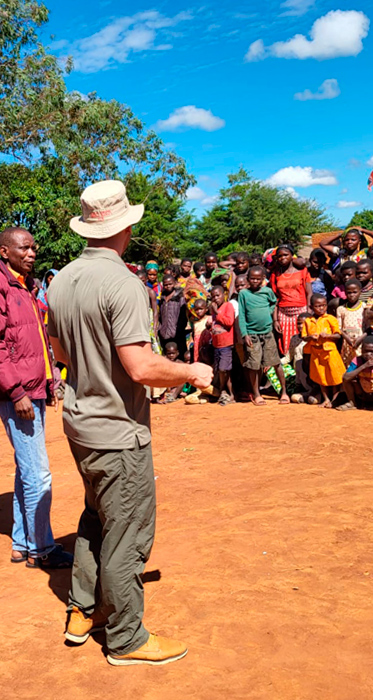
PROJECT CYCLE
Permaculture initiative through community participation
PROJECT IMPACT
Sustainable Development Goals
Permaculture and reforestation initiatives combat global warming, alleviate pressure on Congolese forests, and enhance carbon absorption through agroforestry. By empowering local communities, we stimulate eco-sustainable villages, create renewable energy solutions, and foster biodiversity conservation. These efforts contribute directly to SDGs while promoting sustainable development.
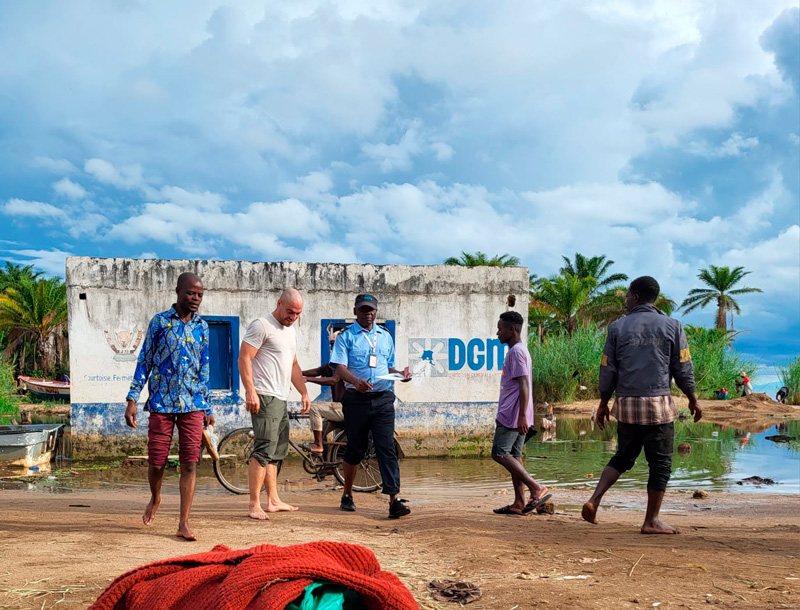
Images worth a thousand words
VIDEO GALLERY
Voices, achievements and highlights
THE PROJECT NOWADAYS
Mwami manda, Xavier rouget, Christian Dudu, Guilaume Buselekete and members of the communities tell us about the progress of the project.
INTERVIEW WITH
Xavier Rouget
Listen to this interview with Xavier Rouget, the founder of Fanyatu, as he discusses the reforestation project in Moba territory, Tanganyika province.
In this conversation with Radio Okapi RDC, Xavier shares the incredible mission of Fanyatu to protect the Congolese forests.
